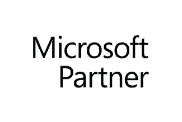November 2, 1936 : BBC Basics
“Gentlemen, you have now invented the biggest time-waster of all time. Use it well.”, said Isaac Shoenberg, head of the EMI research team that developed the first fully electronic television system to be used in regular broadcasting.
On the second of November 1936, the British Broadcasting Corporation (BBC) transmitted the first-ever scheduled television programmes. They were in “High Definition” (at the time) and started airing at 3pm and finishing at 4pm. Then again with more content at 9pm until 10pm.
Programming featured brief impromptu performances by musicians. The duration was restricted because early viewers (referred to as “lookers in”) reported eye strain from watching the small screens of the time.
The BBC (namely the world’s oldest national broadcasting organisation, established in 1922), is unusual in that they don’t broadcast adverts on their (domestic) channels because it’s primarily funded by the TV licence fee paid by UK households. This means that it remains independent of commercial interests (as far as we know) and they’re unbiased (supposedly) and a beacon of free-world hope, recognised for its independent reporting throughout the world. In fact, although the primary audience speaks English, the BBC broadcasts in dozens of languages worldwide, from major ones like Arabic, Chinese, and Russian to regional languages like Hausa, Kyrgyz, and Tok Pisin.
In the 1980s, the BBC was involved in a project to promote computer literacy. This led to the creation of the BBC Micro, a series of microcomputers co-developed with Acorn Computers. It was widely used in schools across the UK and was part of a wave of pioneering home-computers originating at the time that kicked-off the careers of many computer programmers and entire industries related to home-computing. Later on in 2015, in a bid to help foster a new generation of computer users, the BBC, in partnership with other organisations, released the Micro Bit, a tiny programmable computer for kids.
As an institution you can either Love it or hate it, nevertheless there’s no denying that the BBC in no small part helped shape the current IT landscape in the UK via an entire generation of people that started their IT career from those early BBC computers and who watched inspiring BBC programmes such as “Tomorrow’s World”.




